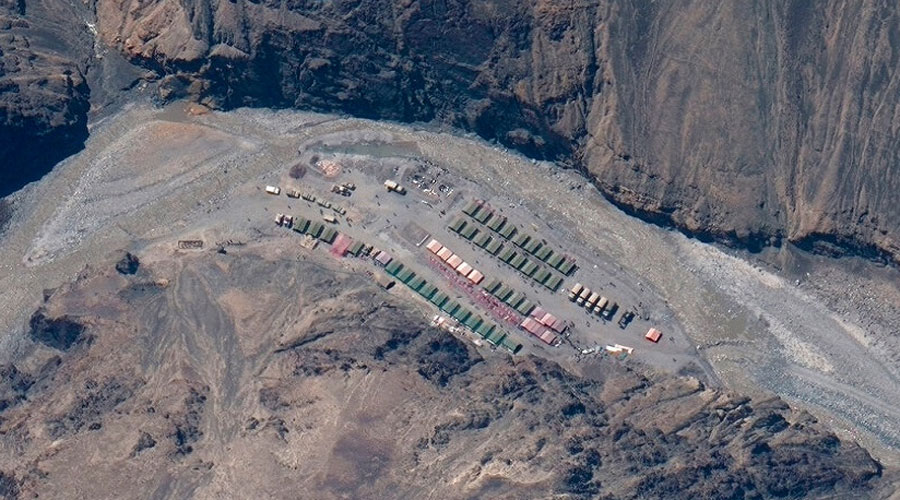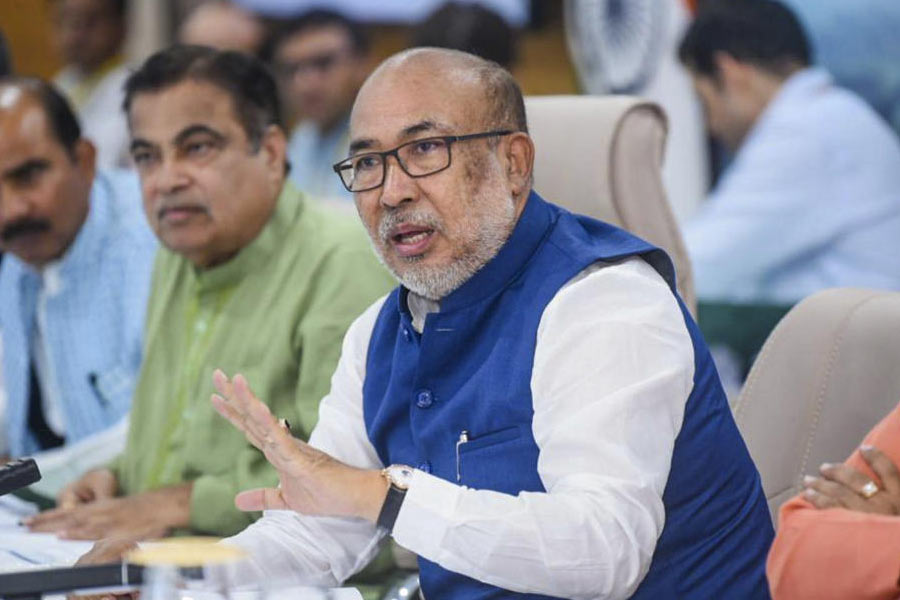The 10th round of military talks between India and China lasted 16 hours but ended without clarity on a disengagement process for the Depsang Plains, an operationally critical area for the Indian army where the Chinese are entrenched 18km inside India-claimed lines.
Military veterans have been saying that India should have already got the Chinese to agree to pulling back from the Depsang Plains as a condition for the now-concluded Pangong Lake disengagement.
However, a joint statement released by India’s defence ministry on Sunday did not name the Depsang Plains or the other remaining friction points, Gogra and Hot Springs, merely mentioning a future “push for a mutually acceptable resolution of the remaining issues”.
Nor did the statement say anything about restoring the status quo to what it was in April 2020 before the Chinese intrusion, a continuing omission in recent statements that veterans see as a sign of Indian capitulation.
The joint statement spoke about “maintaining peace and tranquillity in the border”, echoing what defence minister Rajnath Singh had told Parliament last week. Rajnath had not mentioned the restoration of status quo ante.
“Disengagement from the Depsang Plains may take time as the Chinese look very rigid about retreating from there. Right now, disengagement from Depsang is a big challenge for us,” a defence ministry official told The Telegraph.
He said the Chinese had, however, agreed to work towards an understanding on the disengagement process to be initiated at Gogra and Hot Springs.
He added, however, that the two sides had last July agreed on disengaging from Hot Springs and Gogra but the Chinese went back on their word.
In an interview published in The Hindu on Sunday, former foreign secretary Shyam Saran said India’s acceptance of “phased” withdrawal instead of demanding complete disengagement (covering the Depsang Plains) suggested it was focusing on the “restoration of peace and tranquillity at the border” rather than the restoration of status quo ante.
“It’s a matter of extreme concern that India does not seem to be pushing for the restoration of status quo,” former lieutenant general told The Telegraph on Sunday.
“Why have we suddenly changed our earlier stand on the restoration of status quo being crucial to maintaining peace and tranquillity at the border? Is this the price we are paying for a disengagement deal with China?”
He implied New Delhi had developed cold feet, saying: “It seems the government has now taken a policy decision not to talk about the restoration of status quo ante, much like Prime Minister Narendra Modi’s no-intrusion claim.”
Modi had in June last year said no one had intruded into Indian territory or was occupying Indian posts, a statement China milked to project India as the border transgressor.
Sunday’s joint statement was released 17 hours after the talks (Saturday 10am to Sunday 2am) had ended, suggesting lengthy deliberation before it was framed.
“On February 20, the 10th round of China-India Corps Commander Level Meeting was held on the Chinese side of the Moldo/ Chushul border meeting point. The two sides positively appraised the smooth completion of disengagement of frontline troops in the Pangong Lake area noting that it was a significant step forward that provided a good basis for resolution of other remaining issues along the LAC in Western Sector,” it said.
“They had candid and in-depth exchange of views on other issues along the LAC in the Western Sector. The two sides agreed to follow the important consensus of their state leaders, continue their communication and dialogue, stabilise and control the situation on the ground, push for a mutually acceptable resolution of the remaining issues in a steady and orderly manner, so as to jointly maintain peace and tranquillity in the border.”
Under the disengagement process that began on February 10, India and China have moved back from their positions on the Pangong Lake’s north and south banks, with the Indian withdrawal taking place entirely across India-claimed territory.
This has prompted allegations that the government was ceding Indian territory to the Chinese.
Saran told The Hindu that India’s agreement to a “phased” withdrawal could become a cause for concern in the future.
“We had earlier been given the impression that the Indian side was holding out for this engagement not sector by sector, but along the entire LAC, which would include the Hot Spring area as well as Depsang,” Saran was quoted as saying.
“I’m not very sure that this (phased withdrawal) represents going back to status quo ante, which has been, in fact, a constant demand made by us. It would appear that we are more focusing on the restoration of peace and tranquillity at the border, rather than saying that we should go back to what the situation was around April last year.”










